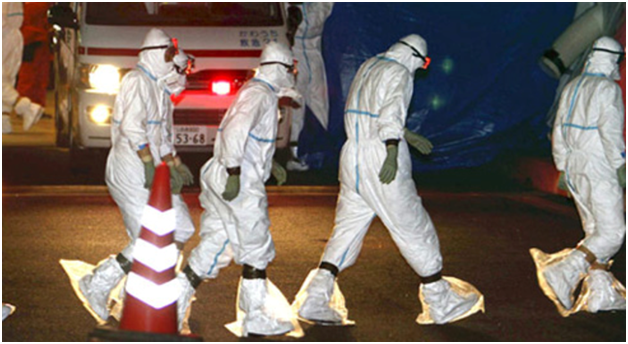It being Labor Day, I thought that I would take this opportunity to talk about labor as it relates to the nuclear industry, including mining, milling, enriching, nuclear fuel manufacture, nuclear plant operation, nuclear weapons production and nuclear waste handling. Most of the media attention on the nuclear labor force is focused on the highly trained nuclear technicians that carry out tasks in the international nuclear industry that require a high level of training and skills. There have been concerns recently about the fact that a lot of the regular skilled nuclear labor force is aging and retiring. With the uncertainties about the future of nuclear power, fewer students are entering training program for nuclear specialties. This in turn cast further shadows on the prospects for a robust nuclear industry in the future.
There is another side to the nuclear labor force that gets little publicity. The World Nuclear Association says that there is a transient workforce they refer to as "nuclear gypsies" who are casual workers employed by subcontractors that have been "part of the nuclear scene for at least four decades." These transients often do the dirty, difficult and dangerous work that is avoided by the regular workforce. They are underpaid and exploited.They go by many different names around the world such as Nuclear Nomads, Bio-Robots, Lumnizers, Glow Boys, Radium Girls, the Fukushima 50, Liquidators, Atomic Gypsies, Gamma Sponges, Nuclear Gypsies, Genpatsu Gypsies, Nuclear Samurai and Jumpers. When one of these workers exceeds the limit of allowed radiation exposure at a particular nuclear site, they often move on to another site where their recorded radiation exposure starts at zero again. The global nuclear industry is fully aware of this practice but ignores it because it would not be possible to continue to profitably operate if not for these transients.
There have been reports of inadequate training, insufficient attention to standard procedures, inadequate safety protection, inadequate record keeping and reporting, and other problems for many nuclear workers in the international nuclear industry. Some of these individuals are exposed to radiation far in excess of the legal limits and suffer impacts on their health such as increased rates of cancer with little or no compensation.
I first heard of this practice years ago when I read a news item about poor people being recruited to clean up spilled nuclear fluids at a reactor in Japan. They were given mops and buckets but were paid little and not told of the danger. After Fukushima, I found out that the Japanese organized crime syndicate called the Yakuza was deeply involved in the staffing of nuclear power plants. Apparently there are two levels of employment. There are the regular highly trained technicians who are properly equipped and protected and then there are the second tier employees who are given cheaper and less effective equipment. An irony of Fukushima is that while many of the highly trained technicians fled when disaster hit, many of the second tier employees stayed and tried to help.
Labor Day is a good time to highlight this practice of exploiting the poor and desperate to do the jobs that the highly trained nuclear technicians won't do. This situation is the kind of thing that led to the rise of labor unions in the first place. The damage done by this exploitation should be counted when the cost of nuclear power is discussed.
TEPCO workers at Fukushima without protective boots:
